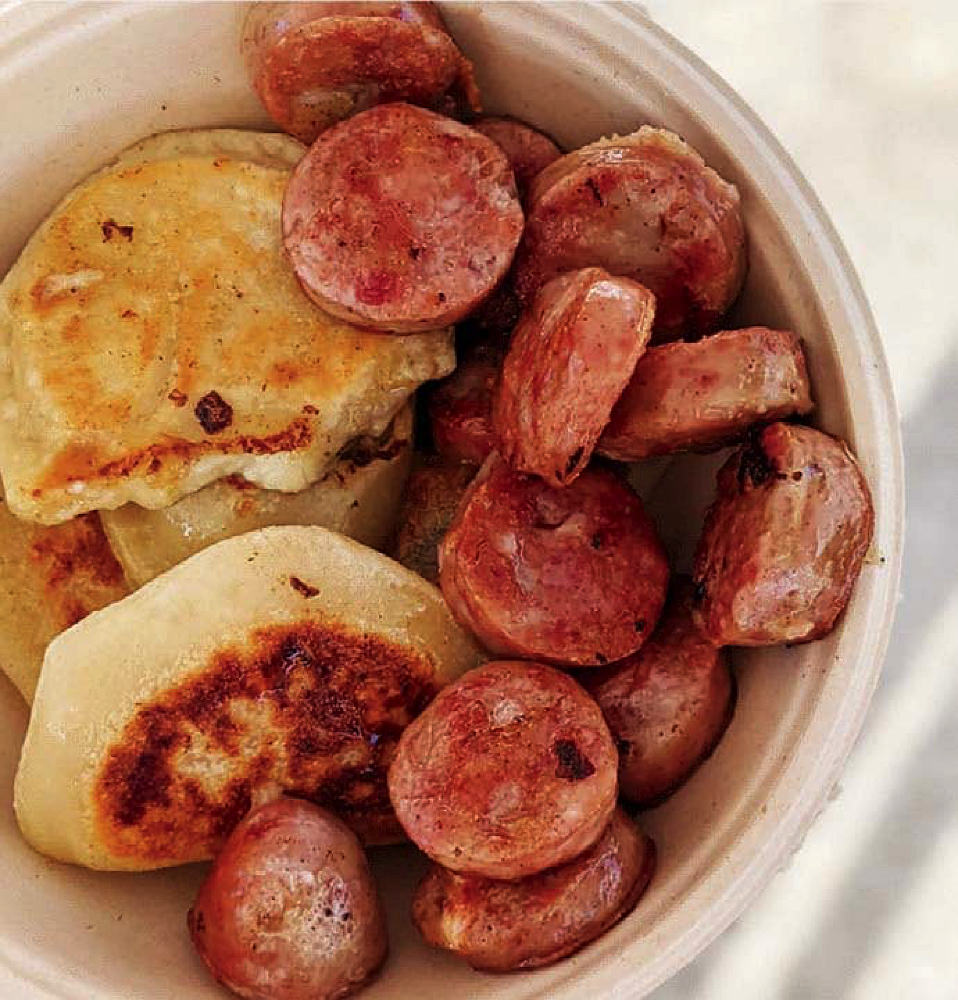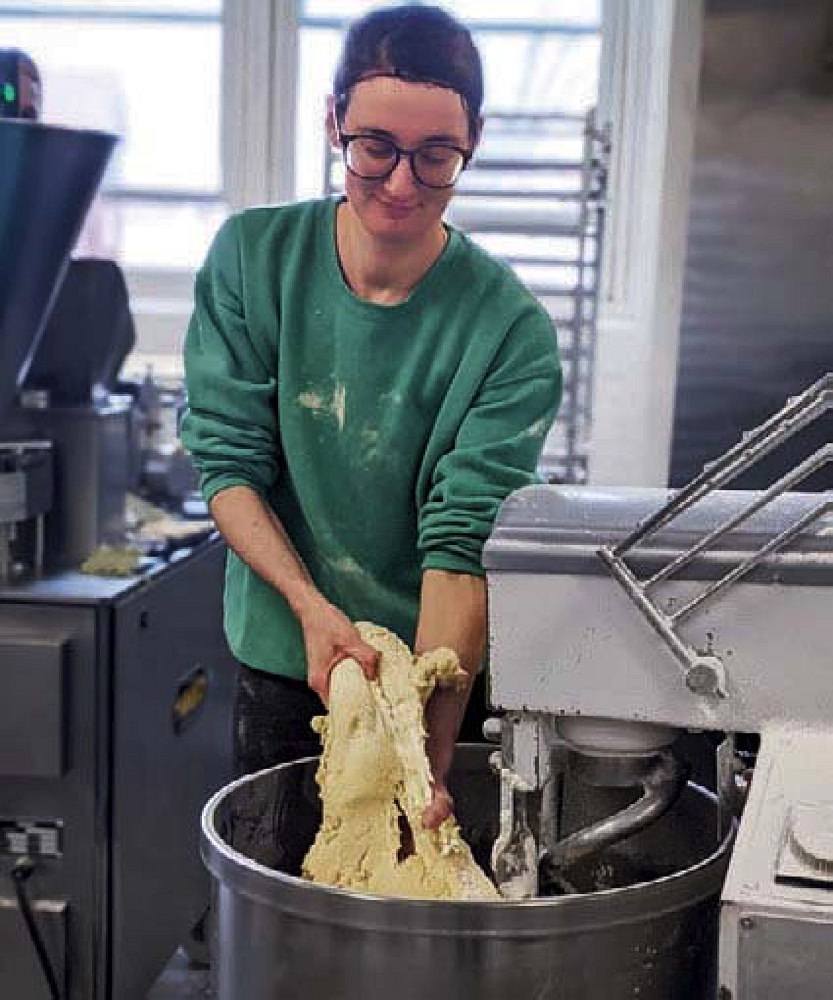Tough. Doughy. Bland. A stingy stuffing-to-starch ratio. Premier pierogies—Polish dumplings—must leap all these culinary hurdles to become the ultimate comfort food. “We have family recipes,” answers Vanessa White, part of the sister-duo who own Jaju Pierogi, “but we also know that a lot of the magic is in the feel.” Their eggy dough’s elasticity and airiness shift with humidity, or an early freeze. “We are always changing it based on the weather and the seasons,” she says. “You can’t take the human element out of this.”

Jaju pierogies served with kielbasa
Photograph courtesy of Jaju Pierogie.
Their grandfather Henry Waniewski certainly never did. He and his Polish American siblings opened Waniewski Farms, in Agawam, Massachusetts, more than 60 years ago. Feeding a community hungry for traditional fare, they rolled and filled their own pierogies and golabki (stuffed cabbage); they ground their own butchered meat for kielbasa. “We grew up going to the Polish club, celebrating Polish holidays,” White says. “We thought it was all normal. But really,” she adds, laughing, “there are some people who do not even know what a pierogi is.”

Pulling dough in Jaju's kitchens in Lynn, Massachusetts
Photograph courtesy of Jaju Pierogie.
Moving as young adults to Boston, she and her sister, Casey, missed authentic dishes. They called home for the pierogi recipe, began making their own, and friends liked them so much that by 2016, they were selling them at farmers’ markets. This spring, Jaju was producing 55,000 of them a week; most popular is what White calls “the gateway pierogi”: potato and cheese. But live a little and try the sweet potato and caramelized onion, or cheddar laced with jalapeños. (Order online through the Lynn, Massachusetts, company, or find them at 450 stores in the Northeast.) “We always thought,” White says, “that what was missing in the market was a high-quality pierogi that reminds you of family.” Waniewski Farms, now run primarily by their uncle, proudly stocks the sisters’ dumplings, and most customers know exactly what inspired them: “Jaju” is the phonetic form of dziadziu, Polish for “grandpa.”








